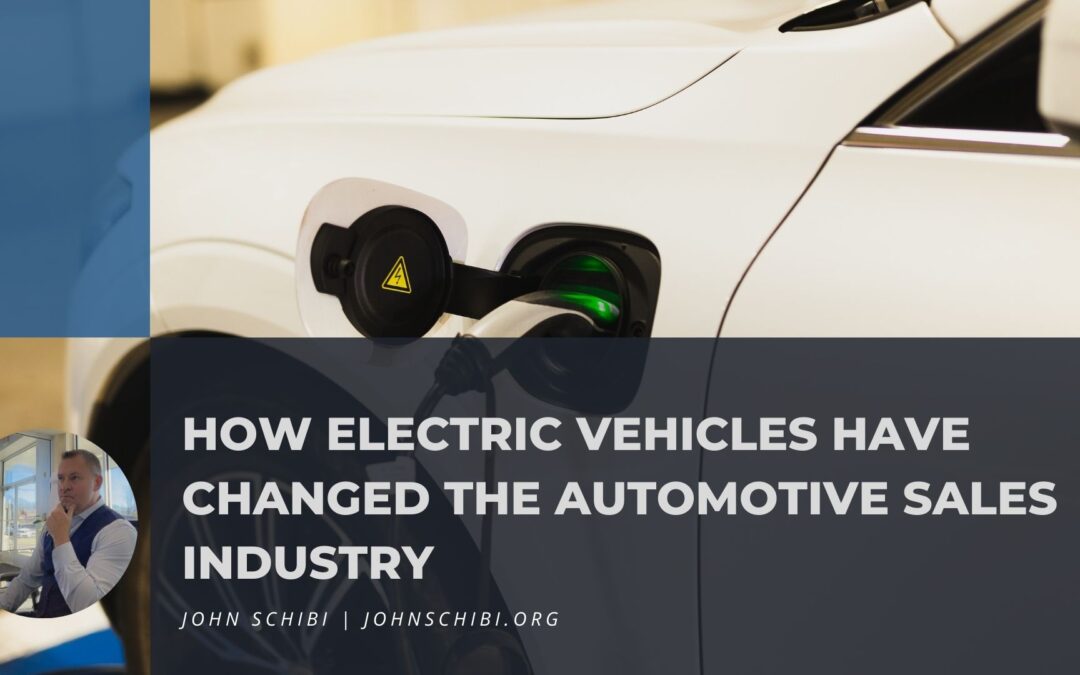Dealerships Step Up Resistance To Mandatory Electric Vehicle Sales

Table of Contents
Financial Concerns and Investment Hurdles for Dealerships
Dealerships face significant financial hurdles in transitioning to a predominantly electric vehicle sales model. The high upfront costs associated with EV infrastructure and the potential for lower profit margins on EVs compared to internal combustion engine (ICE) vehicles are key concerns.
High Upfront Costs of EV Infrastructure
Adapting to EV sales requires substantial investments. These include:
- Charging Station Installation: Installing Level 2 and DC fast chargers necessitates significant capital expenditure, varying based on the number of chargers and their power capacity. Estimates range from several thousand dollars per Level 2 charger to tens of thousands for DC fast chargers.
- Specialized EV Servicing Equipment: EVs require specialized tools and diagnostic equipment for maintenance and repair, different from those used for traditional vehicles. This includes high-voltage safety equipment and specialized training for technicians. Industry experts estimate this investment can reach hundreds of thousands of dollars per dealership.
- Employee Training: Sales staff and technicians need specialized training to understand EV technology, charging infrastructure, and battery systems. This adds to the overall cost of transitioning to EV sales.
The combined cost of these investments can significantly impact a dealership's profitability, especially for smaller dealerships with limited capital. Lower profit margins on EVs, compared to higher-margin ICE vehicles, further exacerbate this financial strain.
Lack of EV Consumer Demand in Some Regions
The adoption rate of EVs varies significantly across geographical regions. In some areas, consumer demand remains low due to factors such as:
- Higher Purchase Prices: EVs typically have a higher initial purchase price compared to comparable ICE vehicles.
- Limited Range and Charging Infrastructure: Range anxiety and concerns about the availability of charging stations remain significant barriers to EV adoption, particularly in rural areas.
- Lack of Consumer Awareness: Many consumers are still unaware of the benefits of EVs or are hesitant to adopt new technology.
This uneven demand creates a risk of overstocking EVs in areas with low adoption rates, resulting in financial losses for dealerships.
Challenges in Sales and Service Operations
Transitioning to EV sales presents significant operational challenges for dealerships, impacting both sales and service departments.
Different Sales Strategies and Customer Experience
Selling EVs differs significantly from selling ICE vehicles. Sales cycles tend to be longer, requiring a more consultative approach. Customers often have more questions about charging infrastructure, battery life, and government incentives. Dealerships need to adapt their sales strategies to address these unique customer needs and provide specialized training to their sales staff.
Specialized Service and Repair Needs
Servicing EVs requires specialized skills and equipment. High-voltage systems pose safety risks, requiring technicians with specific training and certification. The diagnostic equipment and repair procedures are also different from those used for traditional vehicles. This results in:
- Increased Training Costs: Training technicians on EV repair is time-consuming and expensive.
- Higher Labor Costs: EV repairs can be more complex and time-consuming, leading to increased labor costs.
- Investment in Specialized Tools: Dealerships need to invest in expensive, specialized tools and diagnostic equipment to service EVs effectively.
Policy Concerns and Regulatory Burdens
Government mandates and quotas are a primary driver of dealership resistance to mandatory EV sales.
Government Mandates and Quotas
Many governments are implementing mandates requiring dealerships to sell a certain percentage of EVs. These mandates often lack flexibility to account for regional variations in consumer demand and market conditions. Failure to meet these quotas can result in significant penalties, creating financial pressure on dealerships.
Lack of Support and Incentives for Dealerships
While governments promote EV adoption, support for dealerships transitioning to EVs is often inadequate. Many dealerships feel that they bear the brunt of the transition costs without sufficient government assistance. This lack of support includes:
- Insufficient Funding for Infrastructure Development: Government support for charging station infrastructure is often insufficient to meet the growing demand.
- Limited Incentives for Dealerships: Incentives for dealerships to invest in EV infrastructure and training are often lacking or insufficient.
- Lack of Collaboration: A more collaborative approach between governments and dealerships is needed to ensure a smooth transition to EV sales.
The Future of EV Sales and the Dealership Model
The challenges facing dealerships in the transition to EVs necessitate adaptation and innovation.
Potential Adaptations and Solutions
Dealerships can explore several strategies to mitigate these challenges:
- Strategic Partnerships: Collaborating with charging network providers or energy companies can help dealerships offer comprehensive EV solutions to customers.
- Investment in Training: Investing in comprehensive training programs for sales staff and technicians is crucial for successful EV sales and service.
- Leveraging Government Incentives: Dealerships should actively explore and utilize available government incentives to offset the costs of EV infrastructure and training.
The Role of Technology and Innovation
Technology can play a crucial role in reshaping the dealership experience and mitigating some of the challenges:
- Online Sales: Online sales platforms can expand reach and reduce reliance on physical showrooms.
- Telematics and Remote Diagnostics: Remote diagnostics and over-the-air updates can reduce the need for physical service visits.
Long-Term Implications for the Automotive Industry
The ongoing conflict between government mandates and dealership concerns has significant implications for the future of the automotive retail landscape. It could lead to:
- Consolidation of Dealerships: Smaller dealerships may struggle to survive the transition, leading to consolidation within the industry.
- Shift in Dealership Roles: Dealerships may evolve into more service-oriented businesses, focusing on maintenance and repair rather than solely on sales.
Addressing the Resistance to Mandatory Electric Vehicle Sales
In summary, dealerships face significant financial, operational, and policy challenges in transitioning to mandatory EV sales. High upfront costs, uneven consumer demand, and a lack of government support are key concerns. A balanced approach is needed, addressing these concerns while promoting the transition to electric vehicles. This requires collaboration between governments and dealerships, providing adequate support and incentives to facilitate a smoother transition. To learn more about potential solutions, search for "electric vehicle dealership support programs" or contact your representatives to advocate for policies that support both the environment and the automotive retail industry. Continuing the discussion on "Dealerships and Mandatory Electric Vehicle Sales" is crucial for a successful future of electric vehicle adoption.

Featured Posts
-
 Peskov Potvrduva Mozhnost Za Nov Razgovor Me U Putin I Tramp
May 27, 2025
Peskov Potvrduva Mozhnost Za Nov Razgovor Me U Putin I Tramp
May 27, 2025 -
 Taylor Swifts Eras Tour In Depth Look At Her Show Stopping Costumes
May 27, 2025
Taylor Swifts Eras Tour In Depth Look At Her Show Stopping Costumes
May 27, 2025 -
 Kai Cenats Streamer University A New Era For Streaming Education
May 27, 2025
Kai Cenats Streamer University A New Era For Streaming Education
May 27, 2025 -
 The Best Memorial Day Deals Worth The Hype
May 27, 2025
The Best Memorial Day Deals Worth The Hype
May 27, 2025 -
 Congres Du Ps Bouamrane Plaide Pour L Unite Face A Faure
May 27, 2025
Congres Du Ps Bouamrane Plaide Pour L Unite Face A Faure
May 27, 2025
Latest Posts
-
 Analyzing Sinner And Djokovics French Open Prospects
May 30, 2025
Analyzing Sinner And Djokovics French Open Prospects
May 30, 2025 -
 Djokovic And Sinners French Open Showdown A Closer Look
May 30, 2025
Djokovic And Sinners French Open Showdown A Closer Look
May 30, 2025 -
 Nuno Borges Upsets Casper Ruud At Roland Garros After Norwegians Knee Issue
May 30, 2025
Nuno Borges Upsets Casper Ruud At Roland Garros After Norwegians Knee Issue
May 30, 2025 -
 Ufc Gustafssons Assessment Of Jones And Aspinalls Upcoming Fight
May 30, 2025
Ufc Gustafssons Assessment Of Jones And Aspinalls Upcoming Fight
May 30, 2025 -
 Roland Garros Knee Pain Derrails Casper Ruuds Campaign Loss To Nuno Borges
May 30, 2025
Roland Garros Knee Pain Derrails Casper Ruuds Campaign Loss To Nuno Borges
May 30, 2025
